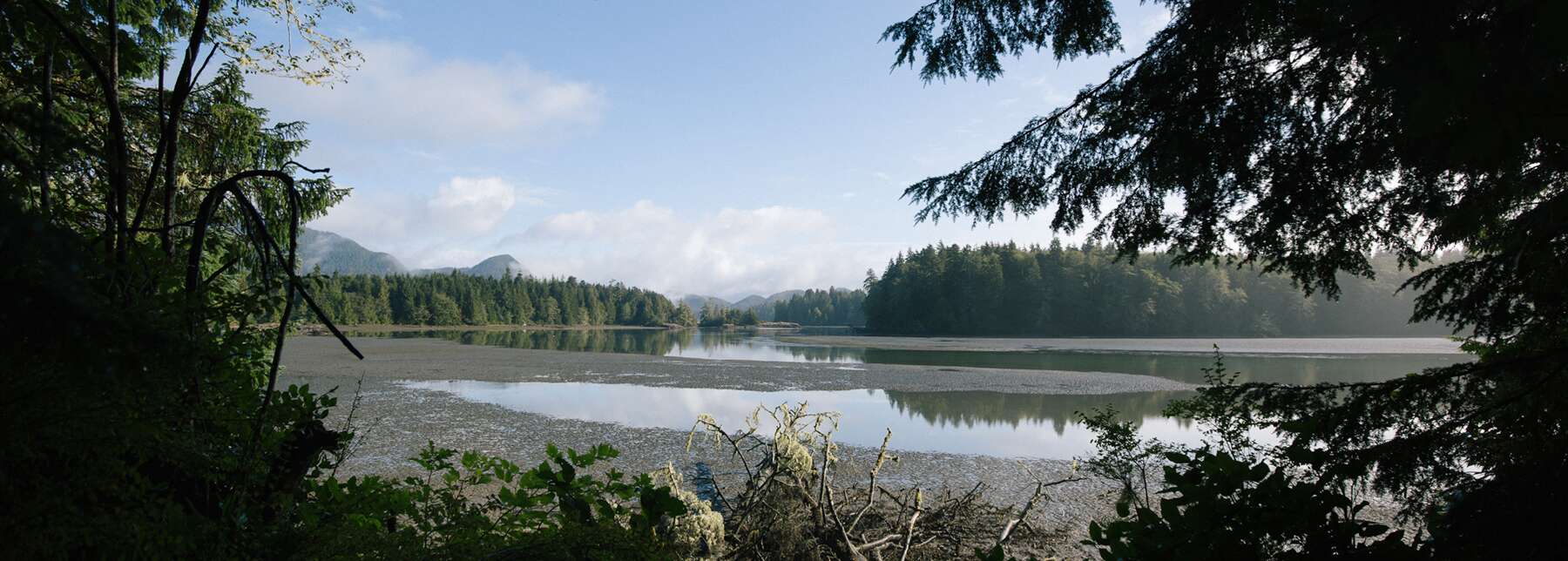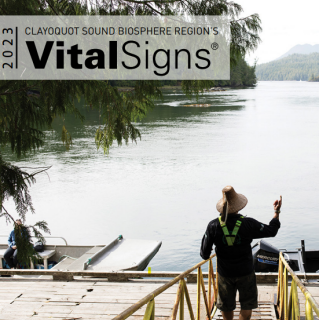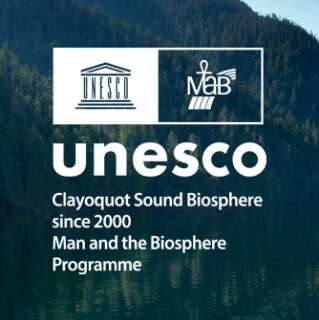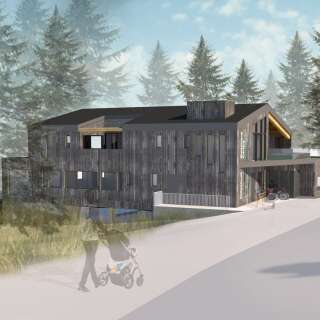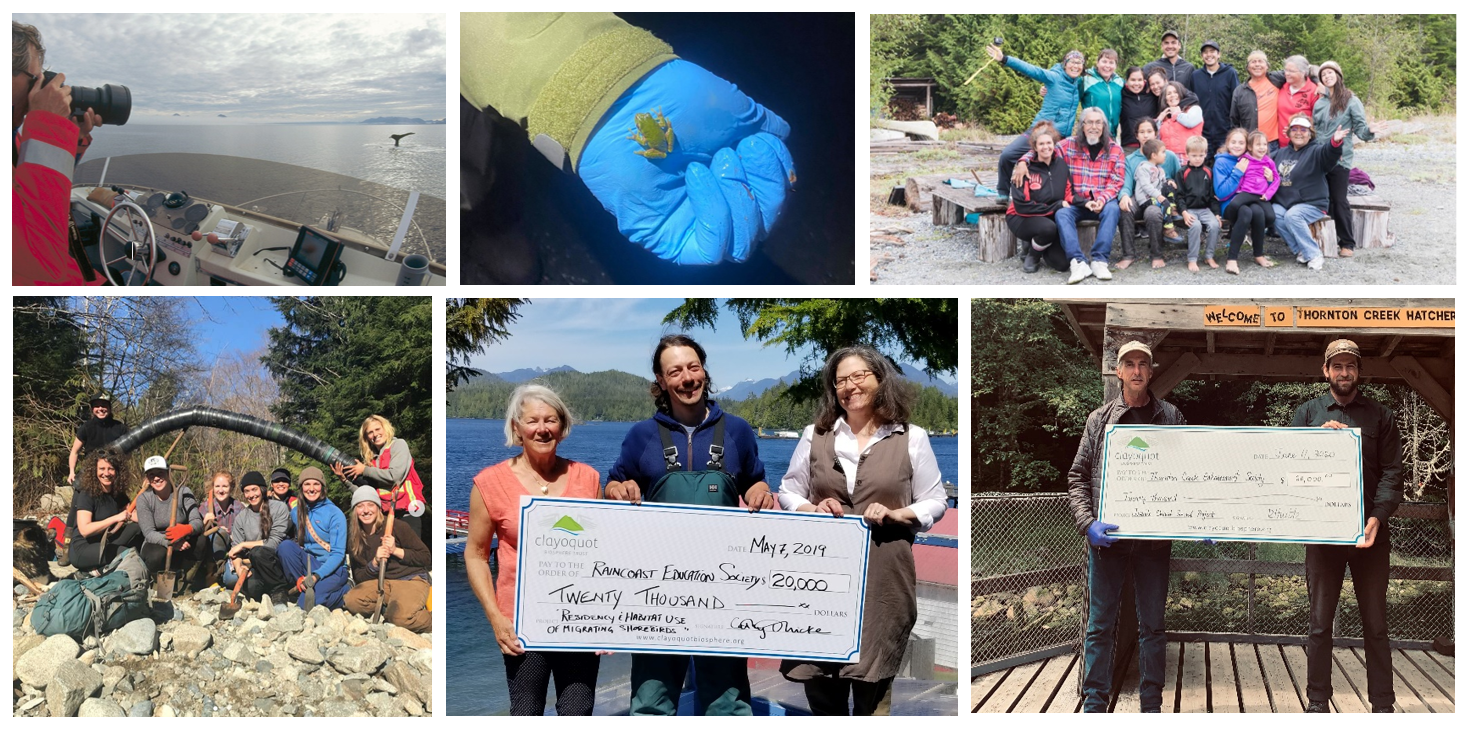These awesome projects are past Biosphere Research Award recipients
Since 2015, the CBT has granted an annual Biosphere Research Award of up to $20,000 to local research projects that will help enhance the vitality of our intertwined ecosystems and communities. We've compiled a list of the projects that were selected over the past 6 years for their ability to meet or exceed the funding criteria for the grant. Check them out below!
2015
Organization: Pacific Wildlife Foundation
Project: Gray Whale Society
Principal Investigator: Jim Darling
Description: Use the research funds to analyze over 40 years of local gray whale sightings and 20 years of DNA samples to further develop his theory on gray whale social structure
2016
Organization: Association of Wetland Stewards for Clayoquot and Barkley Sounds
Project: Conservation of Amphibian Migration Across Roads
Principal Investigator: Barbara Beasley
Description: Our goal is to determine the effectiveness of experimental culverts and fencing material to reduce road mortality and provide habitat connectivity for migrating amphibians.
2017
Organization: University of Victoria / Hesquiaht Language Program
Project: Nuu-chah-nulth (NCN) worldview and place-based language revitalization
Principal Investigator: chuutsqa Layla Rorick
Description: Investigate and deliver NCN-centered content targeting the creation of an educational training program for working-age people to support the revitalization of NCN language in educational, land/sea-based and home environments.
2018
Organization: Central Westcoast Forest Society
Project: Assessing Habitat Conditions at Tranquil Estuary to Guide Chinook Restoration & Conservation Efforts
Principal Investigator: CWFS Research Team
Description: Assess the role of habitat biophysical conditions in the spatial and temporal distribution and abundance of rearing salmon in the estuary. By having an evidence-based picture of the habitat conditions, we can begin to effectively restore the wild salmon stocks of the Tranquil Creek.
2019
Organization: Raincoast Education Society
Project: Residency and Habitat Use of Migrating Shorebirds in Tofino, BC
Principal Investigator: Mark Maftei
Description: Clarify the patterns of residency and habitat use of shorebirds in the Tofino area by tracking shorebirds of multiple species during both spring and fall migration (200 total) over three years using VHF radio transmitters.
2020
Organization: Thornton Creek Enhancement Society
Project: West Coast Vancouver Island Juvenile Chinook Survival Project
Principal Investigator: Tom Balfour
Description: Gain a better understanding of hatchery release strategies, growth rates, survival and spatial/temporal habitat preferences of WCVI Chinook during the year of life in both freshwater and marine environments.
2021
Organization: Strawberry Isle Marine Research Society
Project: Pelagic Marine Species Survey
Principal Investigator: SIMRS Team
Description: There remain vast gaps in knowledge of species that inhabit offshore (pelagic) marine ecosystems, many of which are considered Threatened, Endangered, or Data Deficient. The project seeks to better our understanding of pelagic marine species, offshore habitats, key threats, and recent changes to pelagic ecosystems by collecting a broad spectrum of species and habitat data along the same transect across the continental shelf break near Clayoquot Sound.
2022
Organization: Raincoast Education Society
Project: Residency and Habitat Use of Migrating Shorebirds in Tofino, BC
Principal Investigator: Mark Maftei
Description: To clarify the patterns of residency and habitat use of shorebirds in the Tofino area, we are tracking shorebirds of multiple species during both spring and fall migration using VHF radio transmitters. Data on individual movement patterns and residency are expected to predict the average length of stay in the area as well as the proportion of time spent in different habitats (e.g., beach vs. mudflats). We expect to integrate these data with ongoing studies examining the effects of human disturbance in key areas of beach habitat around Tofino. This project is in its fourth year.
2023 - two awards
Organization: Redd Fish Restoration Society
Project: Salmon Highways: Kelp Forest Habitat in Clayoquot Sound
Principal Investigator: Emily Fulton
Description: Redd Fish’s long-term kelp monitoring initiative will determine baselines for kelp forest distribution, health, and abundance and identify vital kelp forest habitats for Pacific salmon in Clayoquot Sound. Kelp forest ecosystems are known to provide critical migration corridors and rearing habitats for juvenile salmon. Utilizing decades-proven snorkel survey techniques we will be able to quantify species-specific salmon presence in these ecosystems and identify “hot spots” for salmonids in the nearshore marine. The data gathered will inform decisions on future restoration activities, the need for further research, local economic opportunities for First Nation partners, and fill known data gaps related to marine survival of Pacific salmon and the health of other culturally and economically important coastal species.
Organization: University of British Columbia
Project: Microplastic Ingestion by Humpback Whales in Barkley Sound
Principal Investigator: Rhys Jensen
Description: Recent initiatives within Barkley Sound have attempted to describe the pervasiveness of microplastics along its shorelines (Vanderbanck & Griffith-Cochrane, 2021). However, the ability for microplastics to enter coastal food webs is unknown. The project investigates microplastic ingestion – via fecal analysis - amongst humpback whales foraging in Barkley Sound. Humpback whales are critical predators that exploit both fish and zooplankton, providing an opportunity to assess microplastic ingestion across multiple trophic levels (Ford, 2014). The overall goals of my proposed research in Barkley Sound are to 1) determine if humpback whales are ingesting microplastics via analysis of their feces; 2) categorize fecal-derived microplastics by size, shape, and color; 3) conduct genetic analysis on humpback whale feces in attempt to correlate diet with microplastic exposure; 4) determine whether humpback whales ingest microplastic predominantly from the environment or from their prey.
